Introduction
Ural Federal University, also known as Yeltsin University, is one of the eight federal universities in Russia and one of the top ten universities in Russia. It is located in Yekaterinburg, the third most economically powerful and fourth most populous city in Russia. It was one of the four major engineering colleges in the Soviet era, and is also a member of the Russian 5-100 universities and Priority 2030 project.
Overview
Student size: In 2024, there will be more than 45,000 full-time students, including more than 4,500 foreign students.
Faculty: There are more than 4,400 academic staff.
History
18th century: Yekaterinburg Royal University was founded in 1730 by the then Russian tsarina Catherine II, who served as the first president.
1920: The predecessor of Ural State University and Ural State Technical University was established in Yekaterinburg.
Mid-20th century: The school has undergone many changes and developments, during which it has had different names and discipline settings. .
2008: The school began to be named after Yeltsin.
2011: Ural State University and Ural State Technical University officially merged to form the current Ural Federal University.
Establishment time
1920, its history can be traced back to 1730.
School strength
Teaching quality: As one of the oldest universities in Russia, it has high teaching quality, excellent teaching staff, close integration of teaching and scientific research, and has cultivated many talents with outstanding contributions in various fields. It can provide students with a bachelor's-master-associate doctor-doctor integrated training program.
Scientific research results: The school has strong scientific research strength. In recent years, it has achieved remarkable results in many disciplines and promoted the development of related fields. It has many provincial experimental teaching demonstration centers and innovative experimental program projects for college students.
International exchanges: The school actively carries out international exchanges and cooperation. It is a member of many international organizations such as the University Arctic Council and the China-Russia Engineering University Alliance. It has established cooperative relations with universities and scientific research institutions in many countries in the world and participated in the "BRICS Network University" and other international education cooperation projects.
Nature of the institution
Public research university.
Educational philosophy
Focus on the organic combination of teaching and scientific research, emphasize the cultivation of students' innovative and practical abilities, and strive to provide students with high-quality educational resources and a good learning environment to promote their all-round development. At the same time, it focuses on inheriting and promoting Russian cultural and scientific traditions, and cultivating professionals with international vision and social responsibility. The school also combines the fine traditions of classical education in the Soviet period with advanced technologies in the field of modern language learning, adopts communicative teaching methods, and gradually cultivates students' basic language skills such as pronunciation, listening, grammar, reading, writing and speaking.
Key laboratories and disciplines
Key laboratories: The school has many advanced laboratories and research centers, such as some laboratories in the School of Physics and Engineering, which provide good research conditions for scientific researchers and students.
Key disciplines: It has strong strength and high reputation in the fields of civil engineering, power industry and electrical engineering, energy and environmental resources, mathematics, physics, chemistry, computer science, economics, international relations, etc. Some of its disciplines are ranked at the top in the QS World University Subject Rankings.
Faculty
The school has 13 colleges, including the School of Advanced Economics and Management, the School of Advanced Engineering, the School of Social and Political Sciences, the School of Military Technology and Security Education, the School of Physical Education, the School of Administration and Innovation Management, the School of Basic Education, the School of Humanities and Arts, the School of Mechanical Engineering, the School of Natural Sciences, the Ural Electric Power College, the School of Physical Engineering, the School of Materials Science and Metallurgy, the School of Chemical Technology, the School of Architecture, the School of Communications and Information Technology, etc., covering natural sciences, engineering, social sciences, humanities, economics and management.
Ranking
2024: 516th in the QS World University Rankings and 32nd in the QS Emerging European and Central Asian University Rankings.
2023: 959th in the U.S. News & World Report Global Best University Rankings Ranked 701-800 in the Academic Ranking of World Universities.
Expenses
Tuition fees: Tuition fees vary for different majors. The annual tuition fees for undergraduate majors are about 200,000-300,000 rubles, and the tuition fees for English-taught master's majors are about 300,000-400,000 rubles.
Living expenses: About 2000-3000 RMB per month.
Accommodation fees: The school dormitory fee is about 1500-2000 RMB/month.
Campus
Teaching facilities: The school campus is located in the city center, including multiple teaching buildings and laboratories, dormitories, the largest research database in the region, and a sports center. The school also has a large library that meets the needs of teaching and scientific research, a cultural and sports center that can accommodate 10,000 people, and various sports venues.
Dormitory conditions: There are apartment-style dormitories, unit-style dormitories, and corridor-style public dormitories on campus, which are provided for foreign and Russian students of Ural Federal University. Some dormitories have independent bathrooms, while others have public bathrooms located in corridors or units. At the same time, the dormitory kitchen is also equipped with kitchenware, each dormitory building has WIFI, and is also equipped with a gymnasium, lounge, and laundry room.
-

Peter the Great St.Petersburg Polytechnic University
-
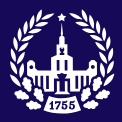
Moscow State University M. V. Lomonosov
-
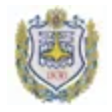
Bauman Moscow State Technical University
-
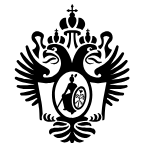
St. Petersburg State University
-

Tomsk State University
-

Peoples' Friendship University of Russia
-

Don State Technical University
-
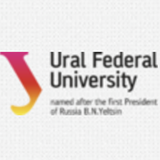
Ural Federal University
-

Moscow Institute of Physics and Technology
-
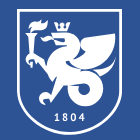
Kazan Federal University
-

Mesoamerican University
-

Istmo University
-

Mariano Galvez University of Guatemala
-

Regional University of Guatemala
-

Galileo University
-

Francisco Marroquín University
-

Rafael Landívar University
-

University of the Valley of Guatemala
-

University of San Carlos of Guatemala
-

Technological Institute of Tlaxcala Plateau
-

Golfo University
-

Technological University of South Sonora
-

Technological University of Huejotzingo
-

Tizimín Institute of Technology
-

Chilpancingo Institute of Technology
